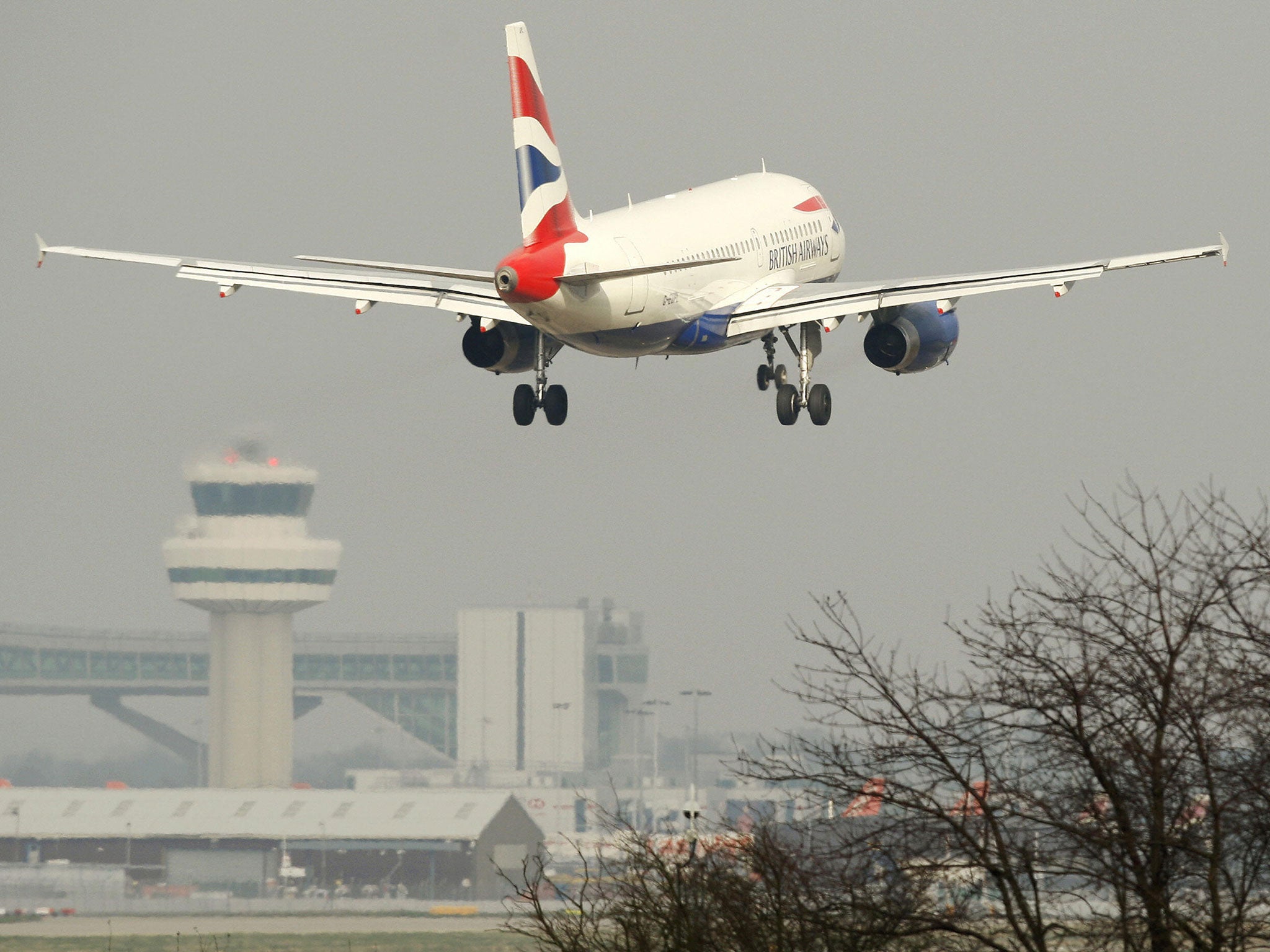Fuel surcharges: What are they and why are cheaper oil prices not being reflected in cost of plane tickets?
Simon Calder asks why, with crude oil prices are lowest since 2009, this surcharge hasn't changed when we fly away

The crude oil price is lower than at any time since the summer of 2009 - feeding through to cheaper fuel for anything from central heating to cars. As motorists are discovering to their benefit, the collapse has led to lower prices at the pumps. Yet leading airlines have made no change to the hefty fuel surcharges that have applied for the past few years - typically £19 for a short-haul economy round-trip to £359 for a long-haul premium flight. So when will airline passengers get to benefit? As travel correspondent of The Independent, Simon Calder has paid more surcharges than most.
Q When did these fuel surcharges start?
They’ve been around in some form since oil prices started to increase a decade ago. Airlines wanted to put up fares to reflect their increased costs, and saw this as a way to imply that the rise was “nothing to do with us”. In 2011 the price of oil rose very sharply, and carriers such as British Airways and Virgin Atlantic put up surcharges steeply, increasing fares but ascribing rises to a cause beyond their control.
“Not our fault - we're just collecting money for someone else,” seems to be the airlines’ view. In the case of a couple of fees, this is not unreasonable. Government taxes such as Air Passenger Duty, and the Passenger Service Charge levied by airports, are passed straight on by the airlines. (That assumes you actually travel. If you are a no-show, then you may be able to retrieve some or all of the APD and PSC; otherwise the airline will keep these amounts and make a handsome profit out of you.) But the fuel surcharge is seeking to separate out one of the many costs of an airline doing business.
Q Does every airline levy them?
No. The no-frills giants, easyJet and Ryanair, have never imposed them and have no plans to do so. That reflects the fact that airlines selling tickets in the UK are, quite properly, obliged to express fares including all the extras. For most travellers who simply want to get from A to B, possibly via C, the way that airlines dress up their fares is largely irrelevant - it’s the headline price that counts.
Q If surcharges are just one element of a headline fare - why does it matter what they are?
A couple of reasons: first, it’s annoying! I’ve just booked a one-way Glasgow-Heathrow flight with British Airways, price £41, of which nearly a quarter was the fuel surcharge - at a time when the price of airline fuel, like other oil derivatives, is tumbling. More significantly anyone trying to claim a “free” flight using frequent flyer points will have to pay the surcharge in full - which means £359 on a return trip to Hong Kong in the posh seats.
Q So why haven’t surcharges fallen?
One word: hedging. Airlines buy their fuel ahead to avoid unpleasant surprises, and currently are paying the aviation equivalent of about $95 a barrel - in other words, nearly twice the market rate. That’s like driving into a petrol station and having to pay more than £2 a litre even when everyone else is paying only £1.20. For example, easyJet - which doesn’t levy surcharges - hedges about three-quarters of its fuel for a year ahead, and two-thirds of its fuel bill for two years out. That means at present the kerosene in easyJet tanks is costing the airline a lot more than the market rate, and if fuel stays cheap then it is likely to continue to be paying over the odds until the end of 2016.
Airlines selling seats in the UK are also being hit by the recent slump in sterling against the dollar because fuel is priced in the American currency - the pound gets weaker, and the cost of fuel rises. And taking a longer-term view, IAG - which owns British Airways and Iberia - says that over the past 10 years fuel surcharges have failed to recoup the extra costs for the airlines. In the most recent quarter for which IAG has published figures, covering June to September, the fuel bill fell by 7 per cent year on year - and part of that was simply a reflection of using more efficient aircraft.
Q Can we expect any relief in the future?
Those expensive “hedge” positions will gradually unwind over the next year or two - and new, cheaper hedges will be set up. Then, if oil surges in price again, airlines and their customers will get some protection.
Now, a reasonable traveller might think that a spell of falling oil prices is just the time to eliminate fuel surcharges altogether, and start again from year zero. It’s possible that airlines might “reset the clock”, but I wouldn’t bet on it - unless they are persuaded or compelled by the Chancellor to remove them.
Q And if they were removed, would fares fall commensurately?
No. Fares are decided by what the market is prepared to pay, So any reduction or removal of the fuel surcharge would be countered by an equal rise in the base fare.
Join our commenting forum
Join thought-provoking conversations, follow other Independent readers and see their replies
Comments